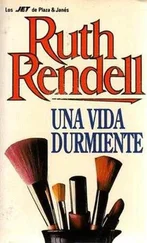Phone for him. Come to think of it, he wouldn’t be able to hear the phone bell in here.… He flung the door open. On the threshold stood the new occupant of Room 3, a tall, handsome man who looked rather like Muhammad Ali.
“I’m extremely sorry to disturb you,” said Winston Mervyn in impeccable academic English quite different from Linthea’s warm sun-filled West Indian. He held out a small cruet. “I wonder if you would be so kind as to lend me a little salt?”
“Sure,” said Anthony. “Come in.” No phone call. Of course he hadn’t given her the number. He remembered quite clearly now.
Winston Mervyn came in. He walked straight up to Linthea who—if this is possible in a Negress—had turned pale. She half rose. She held out her hand and said:
“This is unbelievable. It’s too much of a coincidence.”
“It is not,” said the visitor, “entirely a coincidence. The salt was a ploy. I saw you come to the door.”
“Yes, but to be living here and in this house …” Linthea broke off. “We knew each other in Jamaica, Anthony. We haven’t met for twelve years.”
10
————
On the doormat lay three letters for Winston Mervyn, a bill for Brian Kotowsky, and the mauve-grey envelope from Bristol addressed to Anthony Johnson. Arthur, holding it in his hand, speculated briefly as to its contents. Had the woman decided to leave her husband or to stay with him? But he couldn’t summon up much interest in it, for he was obsessed to the exclusion of all else by his need to secure absolute private possession of the cellar.
It had been frosty, the night preceding November 5, and a thick white rime stuck like snow to walls and railings and doorsteps. The yellow leaves which clogged the gutters were each edged with a tinsel rim. He put his hand to Grainger’s gate and found that it was already unlocked. For once, Barry was in before him. Arthur saw him over by a load of timber, about to set a match to a jumping cracker.
“Stop that,” Arthur said in a chilly, carrying voice. “D’you want to set the place on fire?”
He let himself into the office. Barry came and stood sulkily in the doorway.
“When I was your age I’d have been severely punished if I’d so much as touched a firework.”
Barry blew an orange bubble gum bubble. “What’s pissing you off this morning?”
“How dare you use such language!” Arthur thundered. “Get out of here. Go and make a cup of tea.”
“What, at half nine?”
“Do as you’re told. When I was your age I’d have thought myself lucky to have got a cup of tea in the morning.”
When I was your age … Looking out of the window at the white desolation, Arthur thought of that lost childhood of his. Would he have been punished for touching a firework? Perhaps, by the time he was Barry’s age, he had already been deterred from doing anything so obviously venal. Yes, he had been strictly brought up, but he had no quarrel with the strict upbringing of children.
“Until you are grown up, Arthur,” Auntie Gracie used to say, “I am the master of this house.”
Laxity on her part might have led to his growing up weak, slovenly, heedless about work and punctuality. And a greater freedom would have been bad for him. Look what he did with freedom when he had it—things which would, if unchecked, deprive him of freedom altogether. Like the incident with Mrs. Goodwin’s baby … But before he could dwell on that one, Barry had come in with the tea.
“You seen that bonfire they’re going to have on the bit of ground?”
“I like my tea in my cup, not in my saucer,” said Arthur. “No, I cannot say I have seen it. Who might ‘they’ be?”
“People, kids, I don’t know. It’s a bleeding great pile of wood they got there. I reckon it’ll be the best fire in Kenbourne. It’s no good you looking out of the window, it’s right up against them fences in Brasenose.”
Arthur sipped his tea. “Let us hope there won’t be any catastrophes. I imagine the fire brigade will have a busy night of it. Now when you’ve finished helping yourself to Mr. Grainger’s sugar, perhaps you’ll condescend to empty my wastepaper basket.”
A formidable pile of correspondence awaited him. He began opening envelopes carefully. Once, hurrying, he had torn a cheque for a large sum in half. But this morning a proper concentration was almost impossible to achieve. He knew, from the images which kept moving in procession across his mental eye, from memories arising out of a past he had been used to think eradicated, from the pressure and buzzing in his head, that he was reaching the end of his tether.
Those images included, of course, dead faces; that of Auntie Gracie, those of the two girls. He saw the mouse, stiff, stretched, bloody. And now he saw the baby and heard again its screams.
Auntie Gracie had been minding that baby for its mother. There had been some sick relative, Arthur remembered, whom Mrs. Goodwin was obliged to visit.
“If I have to pop out to the shops,” Auntie Gracie had said, “Arthur will be here”—and with a loaded look—“it will be good for Arthur to be placed in a position of trust.”
Once she was out of the house, he had gone and stood over the baby, scrutinising it with curious desire. It was about six months old, fat, fast asleep. He withdrew the covers, lifted the woolly jacket it wore, and still it didn’t wake. A napkin, white and fleecy, secured with a large safety pin, was now visible above its leggings. Safety was a strange word to apply to so obviously dangerous a weapon. Arthur removed the pin and, taut now with joy and power, thrust it up to its curled hilt into the baby’s stomach. The baby woke with a shattering scream and a great bubble of scarlet blood welled out as he removed the pin. For a while he listened to its screams, watching it and exulting, watching its wide agonised mouth and the tears which washed down its red face. He watched and listened. Auntie Gracie was away at the shops quite a long time. Fortunately. He had to make things right to avoid her anger. Fortunately, too, the pin seemed to have struck no vital part. He changed the napkin which was now wet with urine as well as blood, washed it—how Auntie Gracie had congratulated him and approved of that!—and by the time she returned the baby was only crying piteously as babies do cry, apparently for no reason.
No harm ever came to the baby. It was, he supposed, a man in his mid-thirties by now. Nor had he or Auntie Gracie ever been blamed for the wound, if indeed that wound had ever been discovered. But he was glad for himself that he had known Auntie Gracie wouldn’t be long away, for where else, into how many more vulnerable soft parts would he have stuck that pin had the baby been his for hours? No, she had been his guardian angel and his protectress, succeeded at her death by that other protectress, his patient white lady, garbed in her clothes.…
By one o’clock he hadn’t replied to a single letter. Perhaps, when he had a good lunch inside him … He put on his overcoat of silver-grey tweed, a shade lighter than his steel-grey silk tie, which he tightened before leaving the office until it stood out like an arch of metal. On his way to the Vale Café, he paused for a moment to view the stacked wood. The pile stood some fifteen feet high and someone had flanked it with a pair of trestle tables. Arthur shook his head in vague, undefined disapproval. Then he walked briskly to the café, having an idea that the crisp air, inhaled rhythmically, would clear his pulsing head.
Returning, he was accosted by a young woman in a duffel coat who was collecting information for a poll. Arthur gave her his name and address, told her that he supported the Conservative Party, was unmarried; he refused to give his age but gave his occupation as a quantity surveyor. She took it all down and he felt a little better.
Читать дальше











